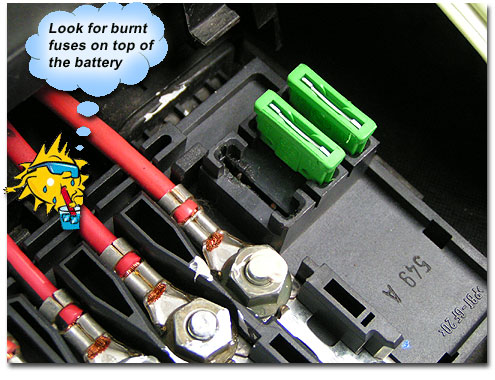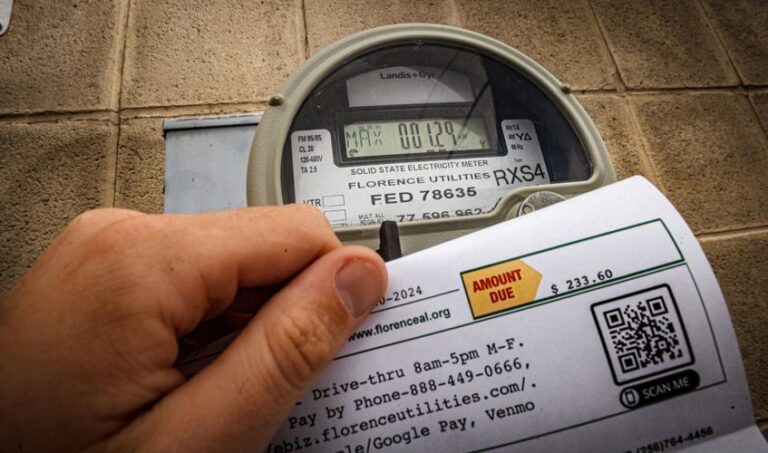Best Fuses for Air Conditioner: Top Picks for Optimal Performance
Finding the best fuses for your air conditioner can be crucial. Without the right fuse, your air conditioner might not function properly.
Air conditioners are essential, especially during hot seasons. But just like any other appliance, they need the right parts to work efficiently. A fuse is a small but vital component that ensures your air conditioner runs smoothly and safely. It protects the unit from electrical surges and prevents potential damage.
Choosing the right fuse can make a big difference in the performance and lifespan of your air conditioner. In this guide, we will explore the best fuses for air conditioners, helping you make an informed decision and keep your home cool and comfortable.
Introduction To Air Conditioner Fuses
Ever had your air conditioner stop working on the hottest day of the year? It’s frustrating, right? Often, the culprit is a tiny component called a fuse. In this post, we dive into the world of air conditioner fuses and why they are so important. Let’s break it down simply so everyone can understand.
Importance Of Fuses
Fuses might be small, but they play a huge role in keeping your air conditioner running smoothly. Think of them like the guards at the gate. They protect the system from electrical issues that could cause serious damage. Without fuses, your air conditioner is at risk.
- Protection: Fuses prevent electrical overload and short circuits.
- Cost-saving: Replacing a fuse is cheaper than repairing a whole air conditioner.
- Safety: They reduce the risk of electrical fires.
How Fuses Work In Air Conditioners
So, how do these tiny heroes work? It’s pretty straightforward. When electrical current passes through, the fuse checks if the amount is safe. If the current is too high, the fuse breaks the circuit. Imagine it like a traffic cop stopping cars to prevent a jam.
Here’s a simple table to illustrate:
| Normal Condition | Overload Condition |
|---|---|
| Current flows smoothly | Fuse breaks the circuit |
| Air conditioner works | Air conditioner stops |
In summary, understanding the role of fuses can help you keep your air conditioner in top shape. And when that heat wave hits, you’ll be cool and comfortable, all thanks to these tiny but mighty components!
Types Of Air Conditioner Fuses
Air conditioner fuses are crucial for the safety of your AC unit. They protect your system from electrical surges and potential damage. Knowing the types of air conditioner fuses helps you choose the right one for your unit. Below are the main types you should know about.
Glass Tube Fuses
Glass tube fuses are common in older air conditioners. They are cylindrical and made of glass. Inside, you will find a thin wire that melts when overloaded. This cuts off the electrical flow, preventing damage. These fuses are easy to check for breaks. If the wire is broken, you need a replacement. They come in various sizes and ratings. Always match the fuse to your AC unit’s requirements.
Ceramic Fuses
Ceramic fuses are more durable than glass tube fuses. They are made of a ceramic material that withstands higher temperatures. Inside, a metal wire or strip melts under excessive current. These fuses are harder to inspect visually. You may need a multimeter to test them. Ceramic fuses are ideal for modern air conditioners. They offer better protection and last longer. Always check the specs to ensure compatibility with your unit.
Choosing The Right Fuse
Choosing the right fuse for your air conditioner is crucial. It ensures safety and efficiency. A proper fuse protects your unit from electrical damage. Selecting the right one can be tricky but with the right information, it gets easier.
Considerations For Selection
Several factors play a role in selecting the right fuse. First, consider the voltage rating. It should match your air conditioner’s requirements. Next, check the fuse’s current rating. It must handle the maximum current your air conditioner draws. Lastly, think about the fuse type. Slow-blow fuses are ideal for air conditioners. They manage the initial power surge well.
Compatibility With Your Air Conditioner
Compatibility is key when choosing a fuse. The fuse must fit your air conditioner’s specifications. Check the manufacturer’s recommendations. Use a fuse that matches these guidelines. This ensures the unit runs smoothly and safely. Using an incompatible fuse can cause damage. It might also void your warranty.

Credit: aircondition.com
Top Fuse Brands
Choosing the right fuse for your air conditioner ensures safety and performance. The market offers various brands, but some stand out for their quality and reliability. Below, we explore the top fuse brands for air conditioners. We will compare their features, benefits, and what makes them the best choice.
Recommended Brands
Several brands are known for their high-quality fuses. These brands have built trust over the years through consistent performance.
- Bussmann – This brand offers a wide range of fuses suitable for air conditioners. They are known for their durability and reliability.
- Cooper Bussmann – They provide fuses that ensure maximum safety. Their products are designed to handle high current loads efficiently.
- Littelfuse – Known for advanced technology and high performance. Littelfuse fuses are ideal for protecting air conditioners.
Brand Comparisons
Comparing these brands helps to understand their unique features.
Bussmann fuses are known for their long lifespan. They can withstand high temperatures and are easy to install.
Cooper Bussmann fuses focus on safety. They feature advanced designs to prevent overloading and short circuits.
Littelfuse fuses are designed with precision. They offer fast response times and are made from high-quality materials.
Choosing the right brand depends on your specific needs. Consider factors like durability, safety features, and ease of installation.
Installation Tips
Installing the right fuse for your air conditioner is crucial. A proper installation ensures safety and efficiency. Here are some essential tips to help you install fuses correctly. Follow these steps to keep your air conditioner running smoothly.
Safety Precautions
Always turn off the main power before working on any electrical component. Use insulated tools to prevent electric shocks. Wear protective gloves and glasses to safeguard against accidents. Double-check that the power is off using a voltage tester. Keep children and pets away from the work area.
Step-by-step Guide
First, locate the fuse box near your air conditioner. Open the fuse box cover to access the fuses. Identify the fuse that needs replacement. Remove the old fuse carefully. Insert the new fuse of the correct type and rating. Ensure it fits snugly into the slot. Close the fuse box cover securely. Turn the main power back on. Test the air conditioner to check if it is working properly.

Credit: www.youtube.com
Troubleshooting Fuse Issues
Air conditioners are a must-have for many, especially when the temperature rises. However, when a fuse issue arises, it can turn your cool haven into a hot mess. Understanding the common problems and knowing when to replace fuses can save you from a lot of discomfort. Let’s dive into the nitty-gritty of troubleshooting fuse issues.
Common Problems
Fuse issues in air conditioners can be caused by a variety of factors. Here are some frequent culprits:
- Overloading: This happens when too many appliances are running on the same circuit.
- Short Circuits: Faulty wiring or damaged insulation can cause a short circuit.
- Old Fuses: Over time, fuses can wear out and lose their effectiveness.
Have you ever had an air conditioner that just wouldn’t work, no matter how many times you reset it? Most likely, the fuse was the issue. It’s important to identify these common problems early to avoid bigger headaches down the road.
When To Replace Fuses
Knowing when to replace a fuse is crucial. Here are some signs that it might be time for a change:
- Frequent Blowing: If your fuse blows more often than usual, it may be time for a replacement.
- Visible Damage: If you see burn marks or a broken filament, the fuse is definitely done for.
- No Power: When the air conditioner won’t turn on, a blown fuse is often the culprit.
Replacing a fuse isn’t as daunting as it sounds. It’s a simple fix that can save you from a sweltering summer day. So, next time your air conditioner stops working, don’t sweat it – check the fuse first!
Maintenance Of Air Conditioner Fuses
Ensuring your air conditioner runs smoothly is crucial, especially during those sweltering summer months. One often overlooked component is the fuse. Maintaining your air conditioner fuses can prevent unexpected breakdowns and costly repairs. So, what does maintaining air conditioner fuses involve? Let’s dive in.
Regular Checks
Regular checks are a simple way to keep your air conditioner in top shape. Think of it like going for a routine health check-up. You don’t want to wait until something goes terribly wrong before you take action. Here’s what you should do:
- Monthly Visual Inspection: A quick look at the fuses can help you spot any obvious issues.
- Quarterly Testing: Use a multimeter to test the fuses. If you’re unsure how to use one, plenty of tutorials are available online.
- Annual Professional Maintenance: Have a professional technician give your air conditioner a thorough check-up at least once a year.
Signs Of Wear And Tear
Over time, fuses can wear out, just like any other part of your air conditioner. Knowing the signs of wear and tear can save you from a hot, uncomfortable day. Here are some tell-tale signs:
- Frequent Blowing: If your fuses blow often, it’s a red flag. It might be due to an underlying issue.
- Discoloration: Fuses that are dark or discolored might be on their last legs.
- Burnt Smell: A burnt smell near the fuse box is never a good sign. It could indicate a fuse is about to fail.
To wrap it up, maintaining your air conditioner fuses doesn’t have to be daunting. Regular checks and knowing the signs of wear and tear can keep your unit running efficiently. Remember, a little effort now can save you a lot of trouble later. So, next time you’re enjoying a cool breeze from your air conditioner, give a thought to those hardworking fuses!

Credit: www.ebay.com
Frequently Asked Questions
What Type Of Fuses Should Be Used With Ac Systems?
Use time-delay or slow-blow fuses for AC systems. They handle short-term surges without blowing. Ensure they match the system’s voltage and current rating.
Why Do We Need A 10a Fuse For An Air Conditioner?
A 10A fuse protects the air conditioner from electrical overloads and short circuits. It ensures safe operation and prevents damage.
What Is The Rating Of The Ac Fuse?
The rating of an AC fuse typically ranges from 15 to 60 amps. It depends on the AC unit’s specifications. Always check the manufacturer’s guidelines.
What Kind Of Circuit Breaker Do I Need For An Air Conditioner?
You need a dedicated 20-30 amp, 220-240V circuit breaker for an air conditioner. Always check the unit’s specifications.
Conclusion
Choosing the right fuse for your air conditioner is crucial. It ensures safety and efficiency. Always check the fuse rating and compatibility. Regular maintenance can prevent issues and extend lifespan. Consult a professional if unsure about installation. Proper care of your air conditioner saves money and energy.
Stay cool and safe with the best fuses. Thank you for reading and happy cooling!

My name is Maria, A professional merge game player with years of experience mastering games like Merge Dragons, Merge Gardens, Merge Mansion, and more. My passion for uncovering the best strategies, solving tricky puzzles, and discovering hidden secrets led her to create MergeGameplay.com.






